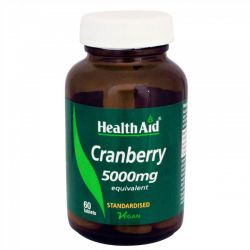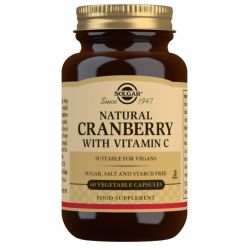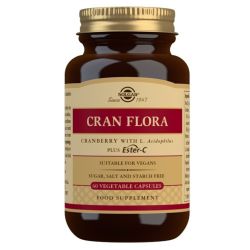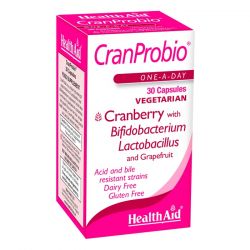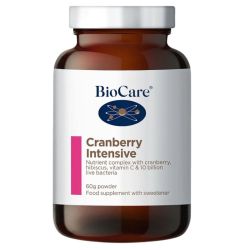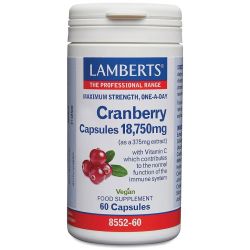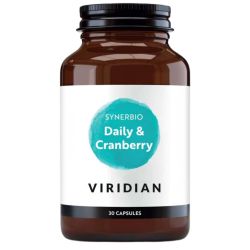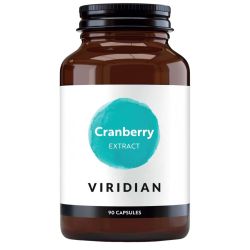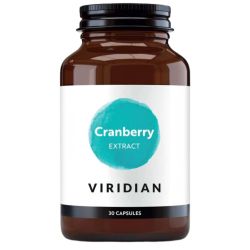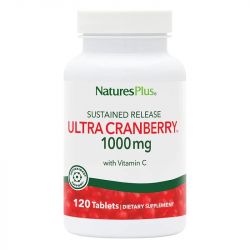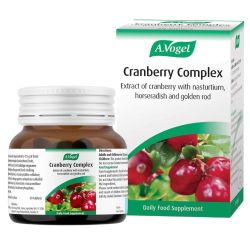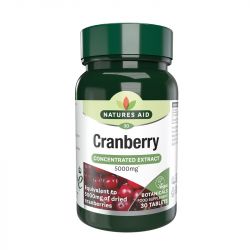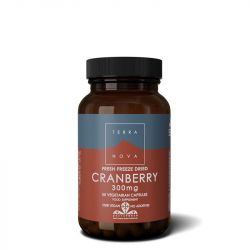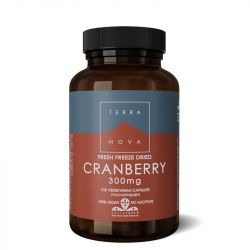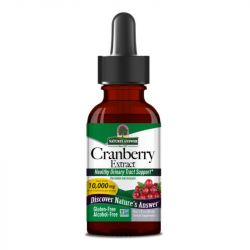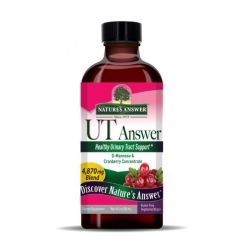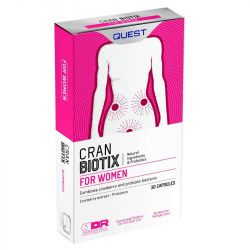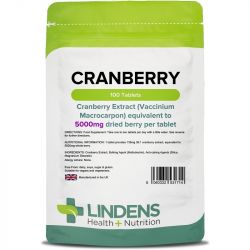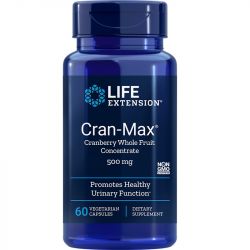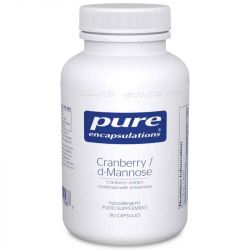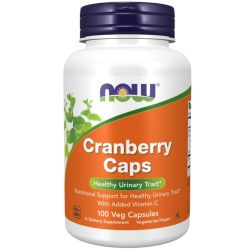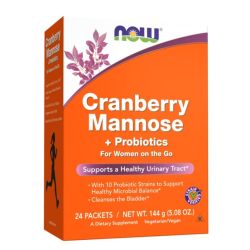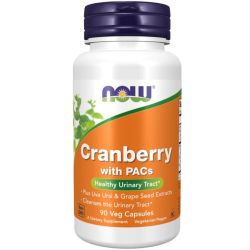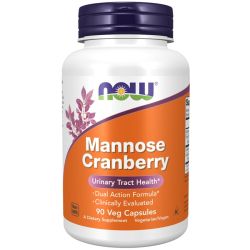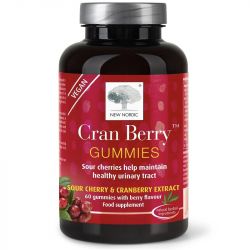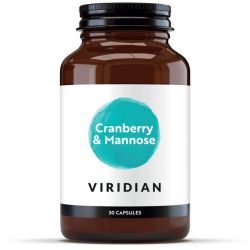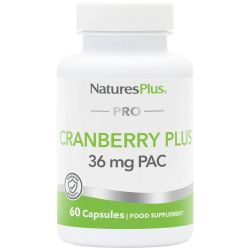Cranberry
Cranberry, scientifically known as Vaccinium macrocarpon, is a small, tart fruit native to North America, particularly in the northeastern United States and Canada. Indigenous peoples historically used cranberries not only as a food source but also for their medicinal properties, including treating urinary tract infections (UTIs) and as a general health tonic.
Cranberries are rich in antioxidants, particularly proanthocyanidins, which are believed to help prevent bacteria from adhering to the urinary tract walls, thereby reducing the risk of UTIs. Additionally, cranberries are known for their anti-inflammatory properties and potential benefits for cardiovascular health and supporting heart function.
Cranberry supplements are commonly available in juice, capsule, and extract forms, with a typical recommended dosage of 500 to 1,500mg per day.
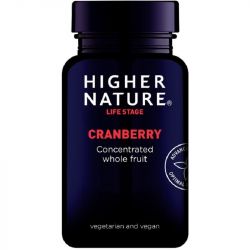 Higher Nature Cranberry Extract 500mg Vegetable Capsules 90Special Price £23.96 Regular Price £29.95
Higher Nature Cranberry Extract 500mg Vegetable Capsules 90Special Price £23.96 Regular Price £29.95- Nature's Plus Sustained Release Ultra Cranberry 1000mg Tabs 120Special Price £16.58 Regular Price £19.50
- Nature's Answer UTI Answer D-Mannose & Cranberry (Alcohol Free) 120mlSpecial Price £31.44 Regular Price £36.99
- NeoCell Collagen Beauty Infusion with Biotin Cranberry 330gSpecial Price £44.99 Regular Price £49.99
All you need to know about Cranberry
What are the benefits of cranberry supplements?
Cranberries are high in vitamin C, and also contain high amounts of the nutrients peonidin, myricetin and quercetin. Cranberry supplements are made from dried cranberries, and help support the immune system while providing antioxidant properties, which helps to protect the body from free radicals. Taking up to two cranberry capsules is the equivalent of a 250ml glass of cranberry juice. Cranberry supplements and juice are mainly used to treat bladder and urinary tract infections.
Do cranberry tablets make you urinate?
Cranberries are an acidic fruit, and they interact with bacteria that may be in the urinary tract, helping the body to fight urinary tract infections. Cranberry is a diuretic, and can make you urinate more frequently. For this reason, cranberry juice and supplements have long been used to treat discomfort and burning associated with bladder and urinary tract infections.
What are the side effects of cranberry supplements?
Some people are allergic to cranberry, and may experience hives, problems breathing or swelling of the lips, face and tongue. Seek medical attention if this occurs. Don't use cranberry supplements if you continue to experience burning pain when urinating, have stomach pain or start feeling sick. Common side effects of cranberry supplements include having an upset stomach, vomiting and diarrhoea.
Is cranberry juice as effective as cranberry supplements?
While cranberry juice can provide similar benefits, it often contains added sugars. Supplements may offer a more concentrated dose of beneficial compounds without extra sugar and calories.
How does cranberry help prevent urinary tract infections (UTIs)?
Cranberries contain proanthocyanidins that inhibit the adhesion of bacteria to the urinary tract, reducing the likelihood of infections.

